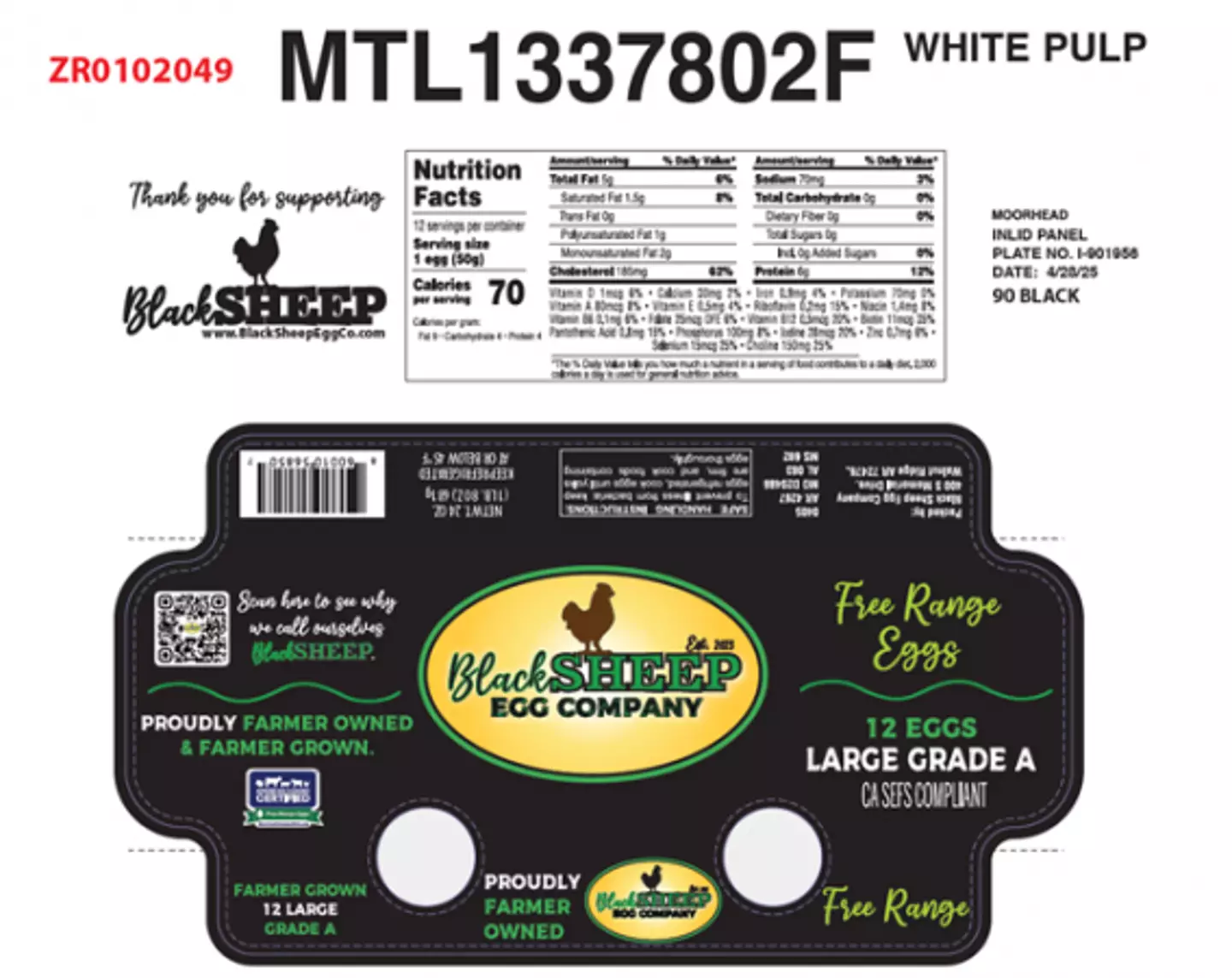
The U.S. Food and Drug Administration (FDA) has issued a recall for more than six million eggs due to potential Salmonella contamination, affecting consumers, retailers, and distributors nationwide.
Last week (October 20), the FDA announced that the Black Sheep Egg Company of Walnut Ridge, Arkansas, was recalling 12- and 18-count cartons of Free Range Large Grade A Brown Eggs with best before dates of October 22 to 31.
The notice stipulated that the business may have also distributed eggs to other companies in Arkansas and Missouri between July 9 and September 17.
It’s understood that buyers may have repackaged the Black Sheep Egg Company eggs and sold them in other states.
Advert
Purchasers are advised to check their stored eggs for UPCs 860010568507 and 860010568538, correlating to the mass product recall.

In addition, Kenz Henz, a Texas-based supplier using Black Sheep eggs, recalled its 12-count Grade AA Large Pasture Raised Eggs with best before dates listed between October 11 and 17.
The UPC to look out for is 86949400030, as per Infectious Disease Advisor.
Black Sheep Egg Company said it is cooperating fully with the FDA.
Alarm bells were initially raised after 40 environmental samples collected at the business's processing facility tested positive for Salmonella, as per an update posted on September 29.
In total, seven different strains of Salmonella were discovered.
This initial research prompted the precautionary Class I recall, the most serious type of product recall, indicating a dangerous product that could cause serious injury or death.
At the time of writing, no illnesses related to the eggs have been reported.
The FDA stated it was ‘aware’ that these recalled products could ‘still be in people’s homes’.
“Check your refrigerators for these products and throw them away or return to the place of purchase,” the agency advised.
“If you stored the eggs without the original packaging and can’t tell if it is part of this recall, throw them away.”

Consumers, restaurants, and retailers should not eat, sell, or serve the contaminated food item, according to the notice.
After disposing of the item, the surfaces the eggs touched need to be sanitised immediately, as Salmonella bacteria can live on dry surfaces for up to four hours, as per the World Health Organization (WHO).
The FDA has also said anyone in possession of the contaminated eggs should wash their hands and any utensils with hot, soapy water after handling.
The notice stated that health providers should be contacted if common symptoms associated with Salmonella begin to develop.
These symptoms include stomach pains or cramps, nausea, and diarrhoea. These are likely to manifest within 12 to 72 hours of infection, per the Cleveland Clinic.
Children under the age of five, people with comparable immune systems, and the elderly are more at risk of developing a severe infection, the agency added.
